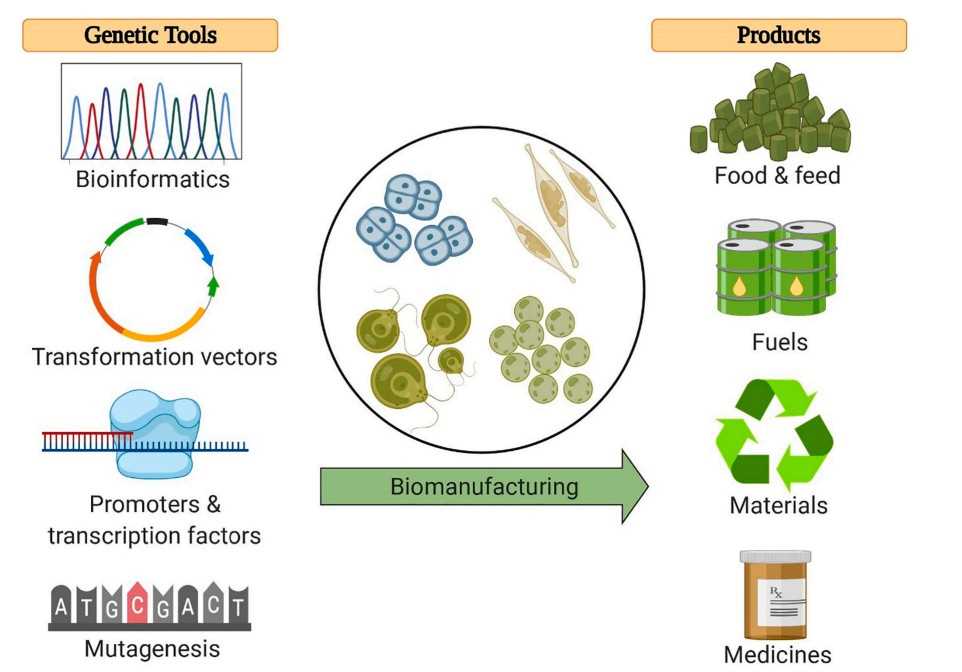Algae-based products are considered clean, sustainable energy and food resources. However, they are not commercialized due to high production costs and low yields. In recent years, novel genome editing tools such as RNAi and CRISPR/Cas9 have improved the quality and quantity of the desired products. Microalgae are microscopic plants with genomic information in organelles, namely the nucleus, chloroplasts, and mitochondria. Transformation can be performed in any genome depending on the pathway of interest. The future of genetically modified microalgae is very bright and can easily achieve increased biomass production, increased CO2 uptake, accumulation of high-value compounds, and reduce farming costs. Genetic engineering of microalgae has gained increasing commercial importance in different fields such as food, pharmaceutical, nutrition, cosmetics, animal feed, and energy industries.
 Fig 1. Genetic tools to develop microalgae as a platform for the biomanufacturing of commercial products. (Sproles A E, et al., 2021)
Fig 1. Genetic tools to develop microalgae as a platform for the biomanufacturing of commercial products. (Sproles A E, et al., 2021)
The broad taxonomic and genetic diversity of microalgae provides multiple opportunities for genetic modification and is a promising platform for developing sustainable food, feed, and bioproducts. Lifeasible has extensive experience in microalgal genome modification and has successfully established a unique microalgal genetic engineering platform. This platform is characterized by the following:
Since most enzymes for fatty acid biosynthesis and secondary metabolism in microalgae are nuclear-encoded, our microalgal genetic engineering focuses on nuclear transformation to achieve overexpression or knockout of key genes encoding enzymes of related pathways or strategic insertion of exogenous genes encoding desired proteins into the algal genome. Our scientists develop the following complete molecular toolbox to manipulate the algal genome to produce optimal amounts of target products.
We are proud to offer our customers customized and comprehensive microalgae genetic engineering solutions, including but not limited to the following:
Our microalgae genetic engineering is being developed as a sustainable platform for the biomanufacturing of a variety of desirable products, including food, feed, fuels, materials, and pharmaceuticals. Our customer service representatives are enthusiastic and trustworthy 24 hours a day, 7 days a week. If you are interested in our services, please feel free to contact us for more information or to discuss in detail.
Reference